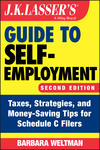Recognizing Income in 2020 Is a Good Thing?
It has long been solid general tax advice to defer income so that it becomes taxed in a future year. However, 2020 is a year like no other and standard tax advice does not apply to all individuals. If your income for 2020 is low because of a furlough, job loss, or reduced earnings, you might want to recognize income now so that it is taxed at the low tax rate you’re likely to have. Recognizing such income now may enable you to reap tax and financial benefits in the future.
Convert to a Roth IRA
If you have a traditional IRA, 2020 may be the year in which you convert some or all of it to a Roth IRA. This will allow all future growth in your account to become tax free. Once you attain age 59½ and meet other conditions, withdrawals from the Roth IRA are not taxable. What’s more, there’s no requirement to take distributions during your lifetime, enabling you to build up a tax-free income source for your beneficiary.
The conversion triggers ordinary income. If your traditional IRA was funded entirely by deductible contributions, then every dollar you convert becomes ordinary income. If your traditional IRA was funded in whole or in part with after-tax contributions, then only part of the conversion is taxable.
Keep in mind that the income from the conversation is not treated as investment income for purposes of the 3.8% additional Medicare tax on net investment income. However, it does increase modified adjusted gross income on which this tax is figured.
Cashing in U.S. savings bonds
If you are holding savings bonds (series EE or I) on which you’ve been deferring the interest income, you might want to cash them in now. This may be especially helpful if you’re near the end of the bond’s term (a maximum of 30 years). All of the deferred income becomes taxable, but as said earlier, it may be at a lower rate than if you wait until some future year.
However, before cashing in the bonds, factor in the interest rate you’re getting on them, which may be fixed at a higher rate than what you could obtain now through some other investment. You can check the interest on the bonds at the U.S. Treasury at https://www.treasurydirect.gov/indiv/indiv.htm.
Sell securities for a profit
If you expect to have taxable income below a threshold amount (below), you may want to take long-term capital gains tax free this year. As long as your taxable income is low enough, a zero percent tax rate applies to gain on the sale of assets held more than one year. You can then reinvest the proceeds, even in the same securities to step-up your basis. Remember, the 30-day the wash sale rule, which limits immediate recognition of losses if you reinvest in substantially equal securities within this period, does not apply to gains.
You won’t be taxed on the profit from the sale of securities if your taxable income (including the capital gains) is below:
- $80,000 if you are married filing jointly or a surviving spouse
- $54,600 if you are a head of household
- $40,000 if you are single or married filing separately
In following this strategy, keep in mind transactional costs. And, of course, make sure investment decisions outweigh tax results.
Conclusion
Review your tax picture now so you can take action before the end of the year to favorably impact your tax bill for 2020. Work with a CPA or other tax advisor who can assess your personal situation and suggest actions helpful to you.



